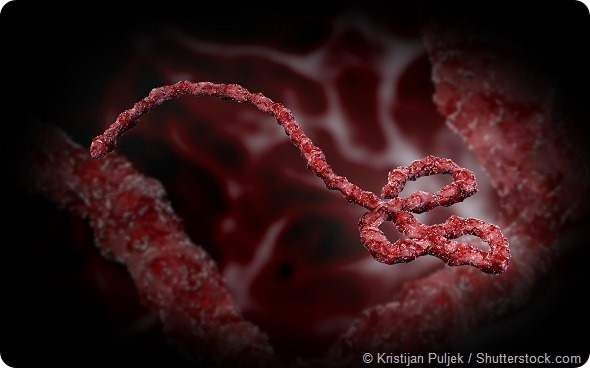Fragments of the Ebola virus can persist in the semen of survivors for as long as nine months after symptoms first develop, according to a study published in the New England Journal of Medicine.

In two thirds of cases, the Ebola virus persisted in the semen for up to six months after initial infection and in a quarter of cases, it persisted for up to nine months.
The findings come from the first phase of a long-term study being conducted by Sierra Leone Ministry of Health and Sanitation, the World Health Organization and the U.S. Centres for Disease Control and Prevention. The study is being carried out following previous findings that Ebola can persist in semen and is hoped to result in a better understanding of Ebola persistence. This is essential to supporting survivors, helping them move on with their lives and establishing whether the persistence poses a threat.
Ninety-three men from Freetown, Sierra Leone took part in the study and provided semen samples between two and 10 months after their illness began. Traces of Ebola were found in the semen of all men tested (9 out of 9) within the first three months of their illness beginning. Of those tested between four and six months, the virus persisted in 65% (26 out of 40) and of those tested between seven and nine months, it persisted in 26% (11 out of 43). Why some of the men had cleared the Ebola fragments from their semen earlier than others is not yet clear.
The report says: "We do not yet have data on the extent to which positivity [on the test] is associated with virus infectivity” and the U.S. Centers for Disease Control and Prevention in Atlanta is testing samples to establish whether the virus is live and potentially infectious.
In the meantime, male Ebola survivors are being encouraged to abstain from all sexual activity or use condoms until their semen has tested negative for Ebola twice.
The WHO Director-General’s Special Representative on the Ebola Response says:
These results come at a critically important time, reminding us that while Ebola case numbers continue to plummet, Ebola survivors and their families continue to struggle with the effects of the disease.”
“This study provides further evidence that survivors need continued, substantial support for the next 6 to 12 months to meet these challenges and to ensure their partners are not exposed to potential virus, ” he concludes.